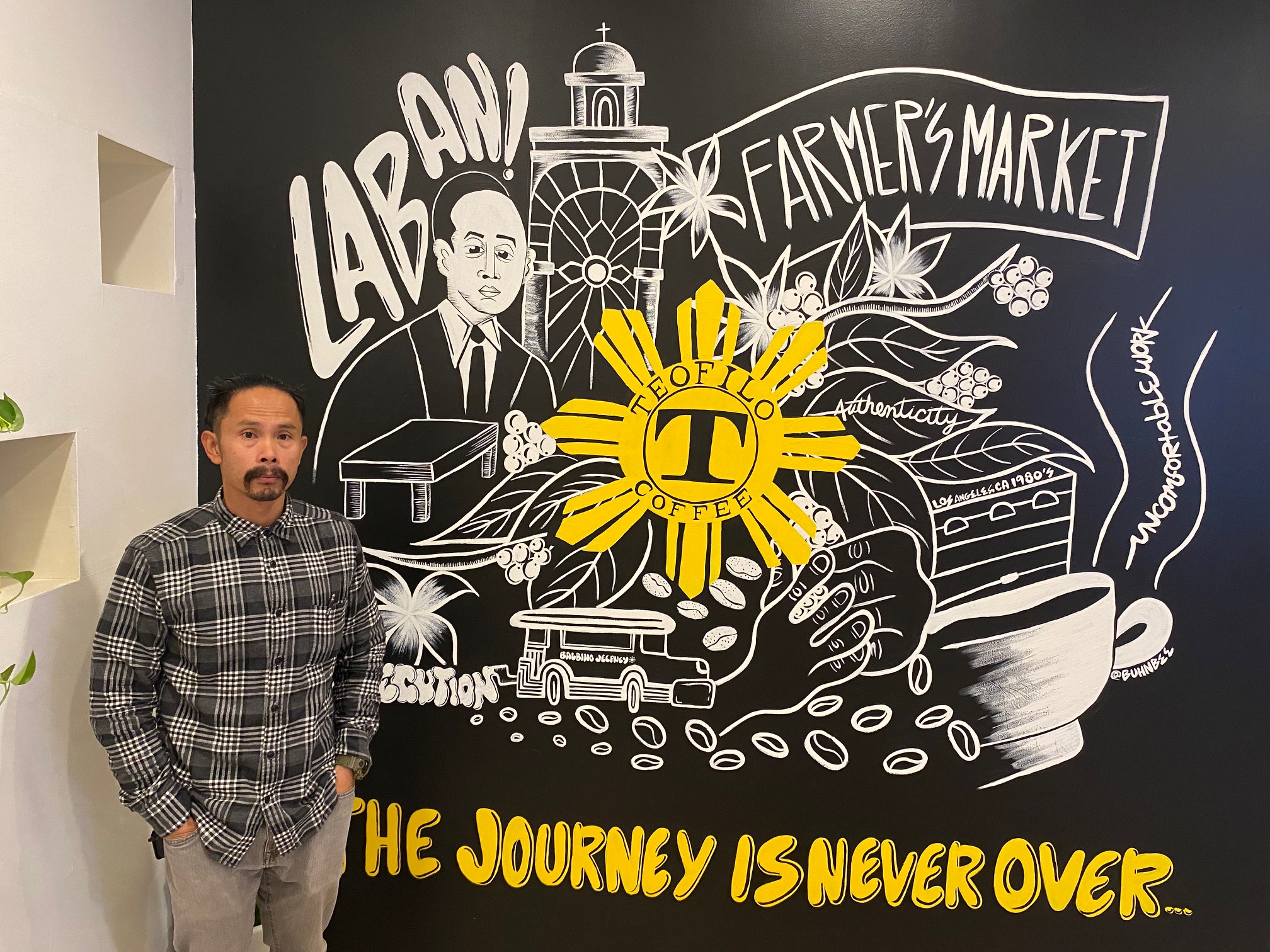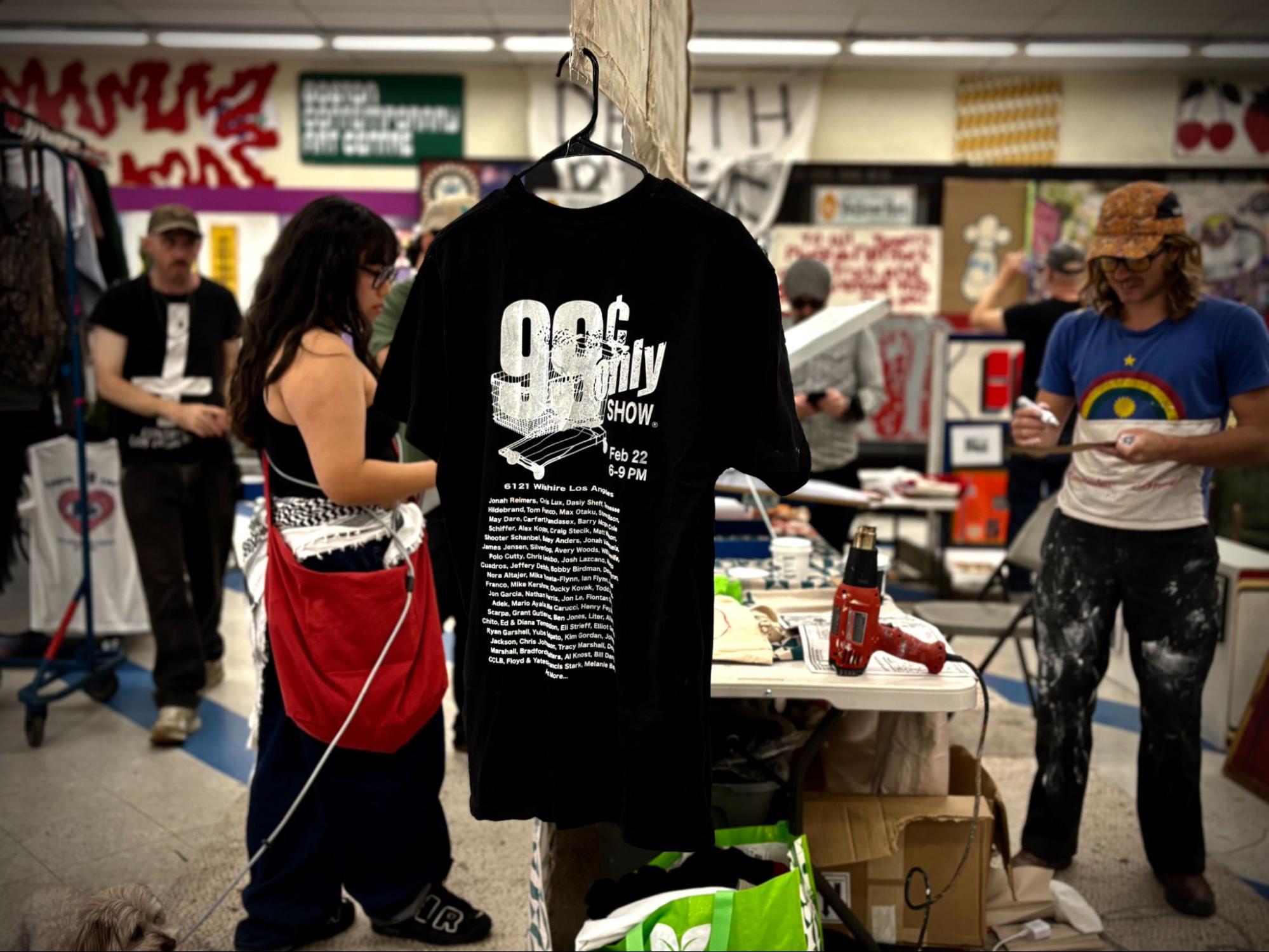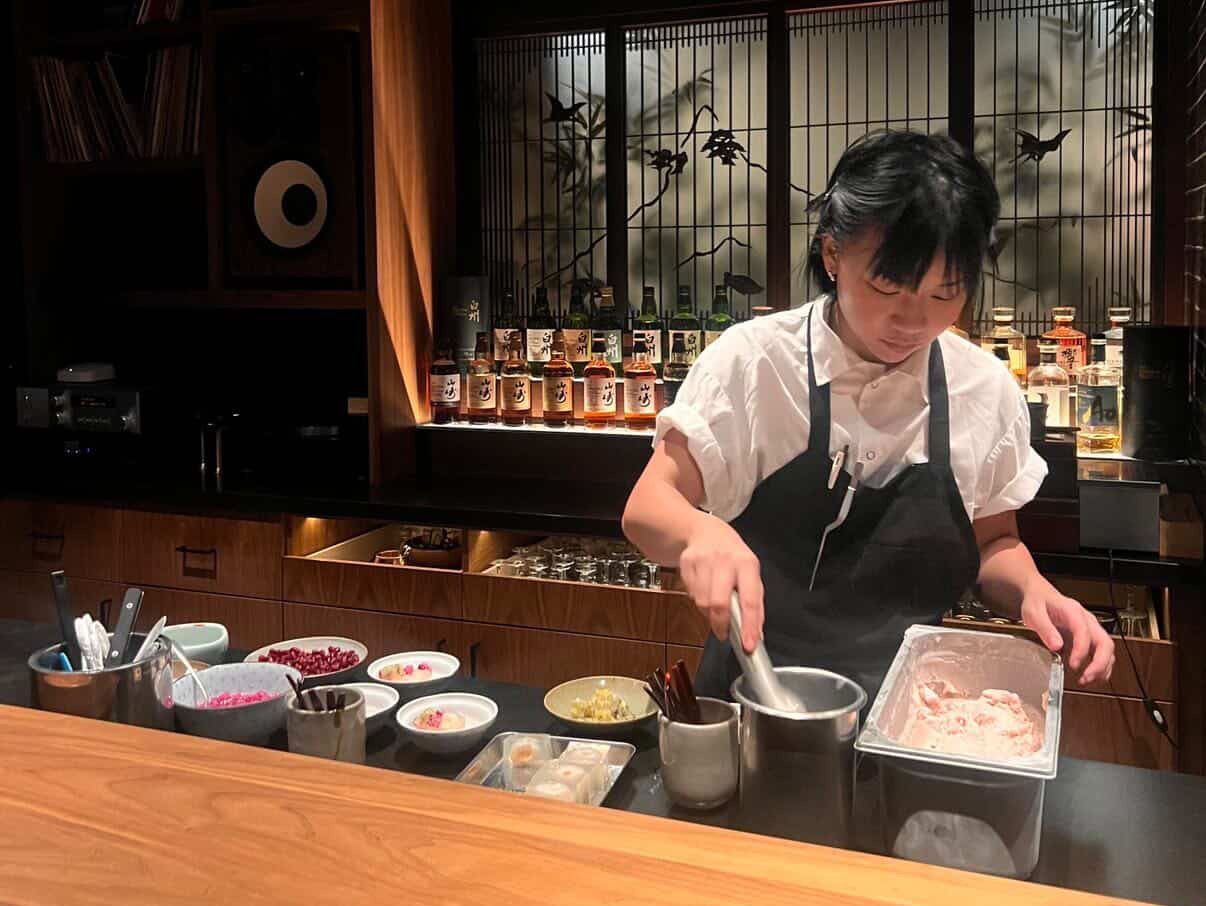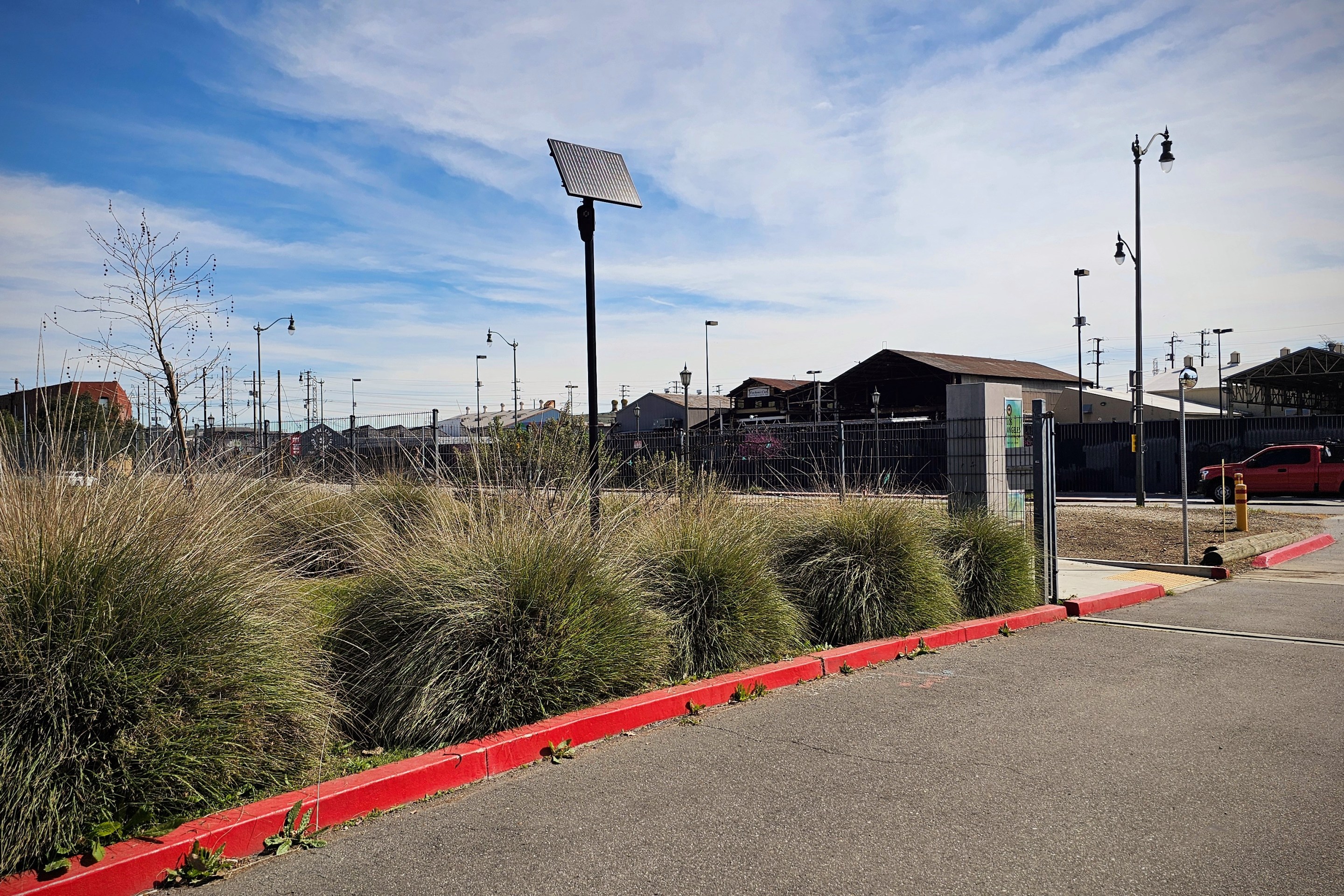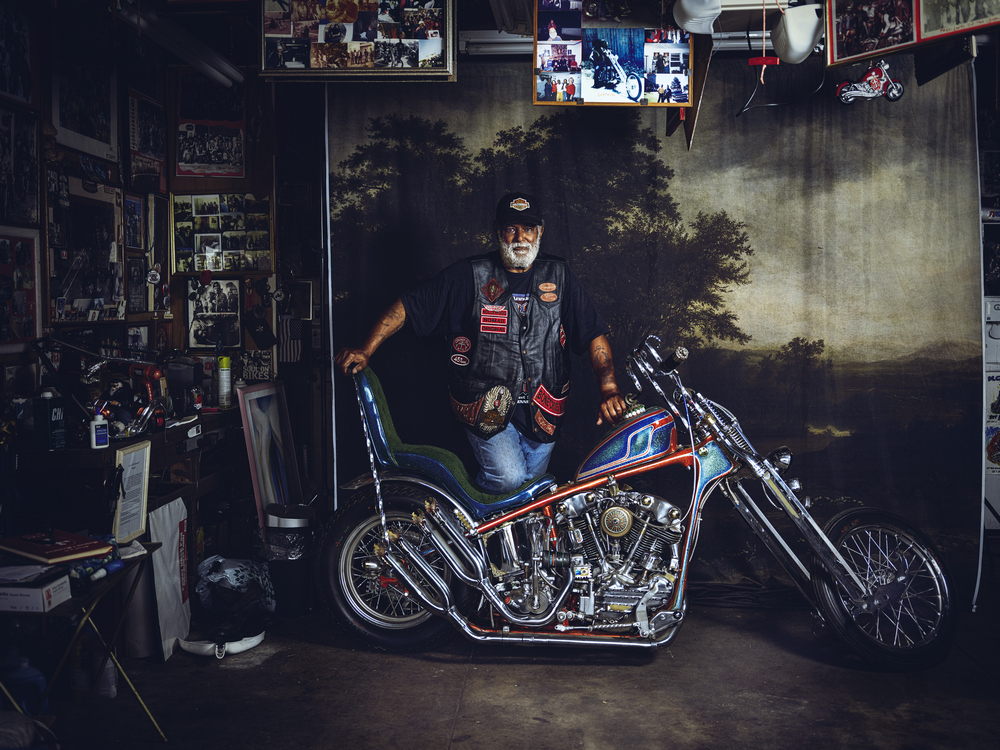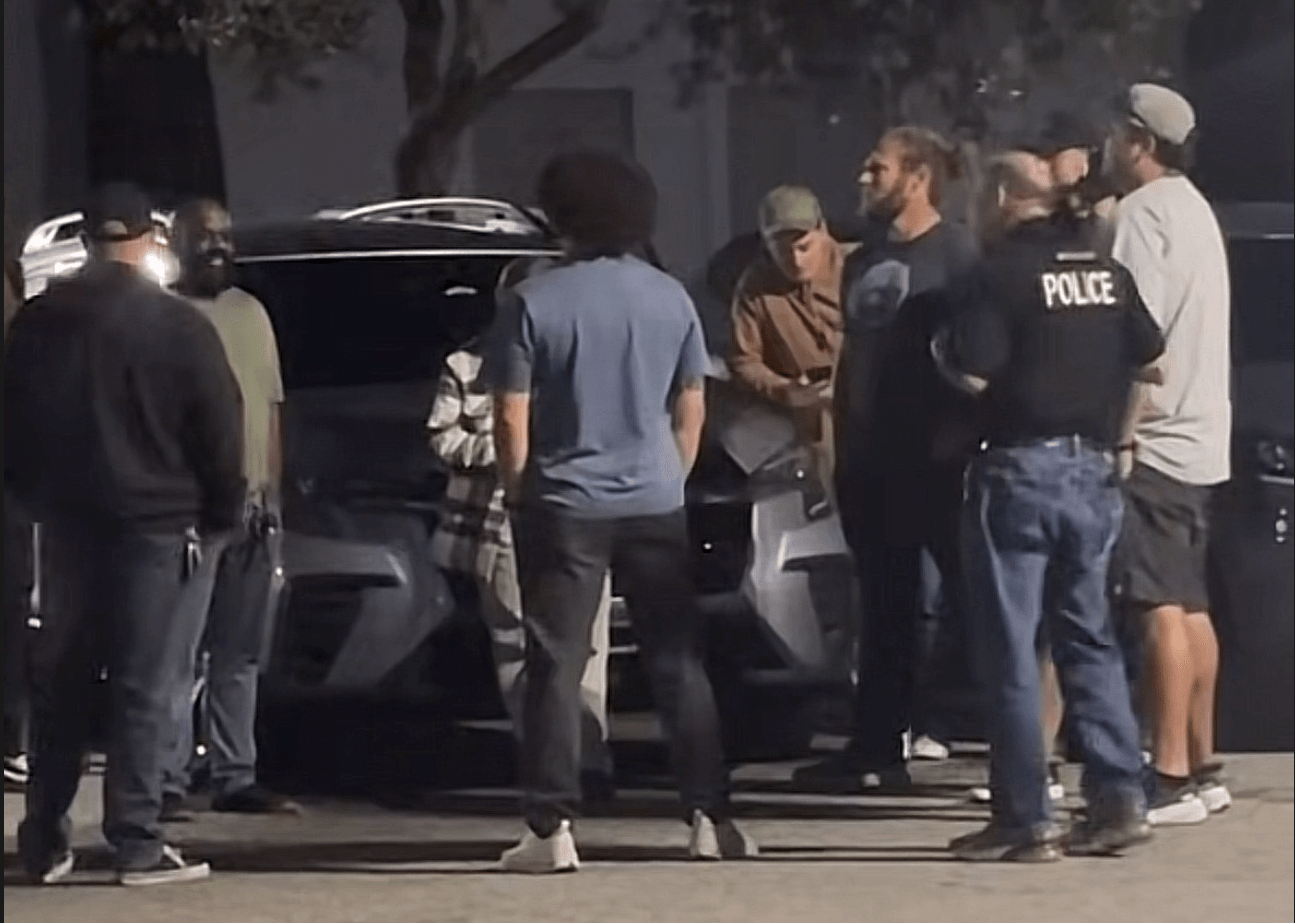Let’s imagine this is a lightning round and you have 30 seconds to write down any sort of coffee terms you know. Common answers would most likely include, but not limited to: Arabica. Robusta. French roast. Coffee Mate. Italian Roast. Starbucks. Guatemala. Java. Kona Blend. Pumpkin Spice Latte.
If you were born and raised around Little Saigon or the San Gabriel Valley, maybe a little Cafe Sua Da (Vietnamese Iced Coffee). If you grew up in the 80s and 90s like I did, you definitely remember Juan Valdez walking in a Colombian jungle with his burro promoting Colombian coffee.
Time’s up. Did anyone have the Philippines or Liberica on their lists?
If you did, you can skip ahead to the next paragraph. If not, that’s where Ronald Dizon comes in.
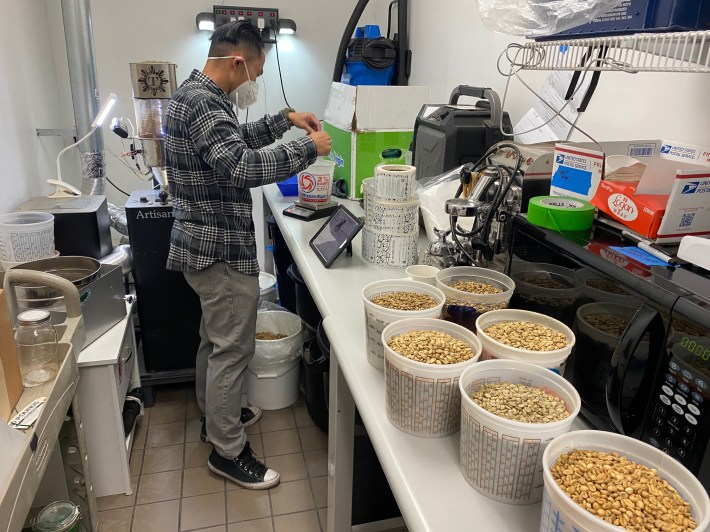
Dizon, 40, is the owner and proprietor of Teofilo Coffee in Los Alamitos. His goal: To put Filipino coffee into as many cups as possible. To this writer’s knowledge, Teofilo is L.A. and O.C.'s only Filipino and Filipino-owned coffee house that emphasizes importing coffee beans direct from the Philippines to make the coffee at Teofilo.
The Philippines is one of the few regions within the coffee belt–the region within the tropics—-that can grow the four different coffee beans. Globally, the most popular is the Arabica bean, but that’s mostly because most countries only grow Arabica. One of the main focuses here is the Liberica bean or kapeng barako in Tagalog, and according to Dizon, it finishes with a smoother, less bitter taste.
“Now I can drink black coffee,” recalls an uncle of Dizon’s telling him upon tasting a freshly brewed cup of Teofilo coffee.
This statement is stated on a mural as soon as you walk into the shop, almost as a mission statement. There are no frappuccinos, pumpkin spice lattes, or any other sugary or creamy drinks at Teofilo.
The focus is on the coffee.
“We want people to taste our coffee for what it is. If they don’t like it, tell us,” says Dizon.
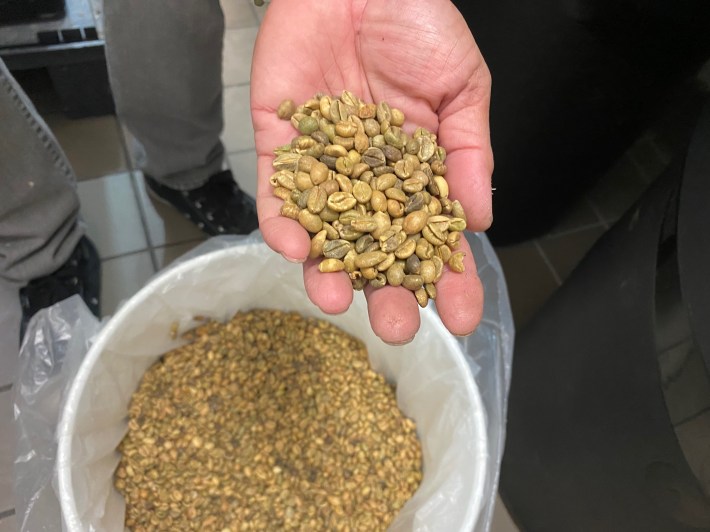
Using his years of experience as an engineer in the automotive industry, Dizon keeps track of each roast that goes through his six-foot-tall roaster. This helps him know which beans went into each roast, how hot the temperature of each roast was, and any particular blends that he has. If something is off, he’s always trying to get better.
“We want the feedback. Tell us what you really think of the coffee,” explains Dizon.
However, Dizon wants to do more than import coffee from the Philippines for his own benefit. Working with the Philippine Coffee Board (PCB), Dizon wants to put coffee grown in the Philippines into as many coffee shops throughout the United States as he can. There’s even a sign inside the shop encouraging people to donate to the PCB to ensure that this becomes a possibility.
Why? To help give Filipino coffee the notoriety that it once held.
According to the Philippine Coffee Board’s website, up until the late 19th century, the Philippines used to be a top exporter and grower of coffee throughout the country. An insect infestation prompted landowners to transition to growing sugar cane. Once a bout of coffee rust set in, the remaining coffee farmers abandoned the crop in favor of other agricultural endeavors. Philippine coffee production and exportation are nowhere near where it once was. For Dizon, at times, patience and supply are the two biggest obstacles he faces in getting coffee beans to the United States.
“Naturally, The coffee board wants to take care of the Philippines first,” says Dizon. “Then we’re able to get what’s left after that.”
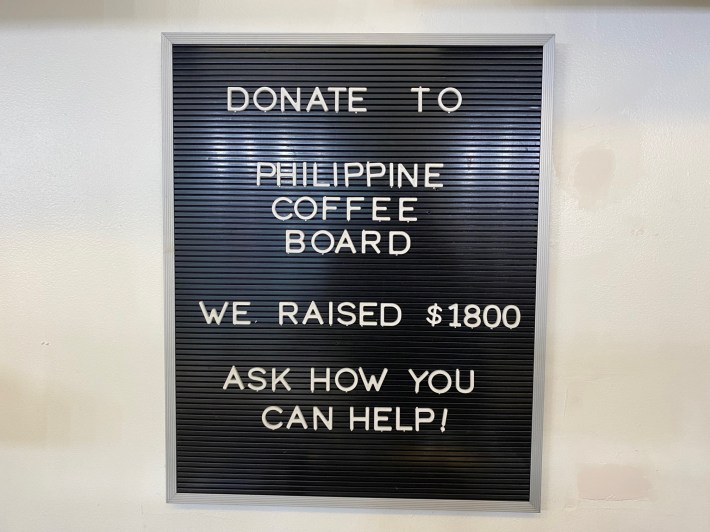
However, four years ago, coffee was the furthest thing from Dizon’s mind. Dizon wasn’t thinking about coffee with a full-time job as an automotive engineer and a family. That was, until he sampled the coffee from his native Philippines. After that, he took it upon himself to bring Filipino coffee to SoCal and started Teofilo, a name honoring his grandfather. Starting at local farmer’s markets and lugging around his coffee roaster on a pallet, demand grew and grew for his blends and roasts, and a brick and mortar location finally opened in summer 2021.
Dizon spends his mornings hand sorting and sifting through bins of unsorted coffee beans. Trying to keep costs at a minimum, he buys his beans unsorted and, using a sifter that he made himself, filters out any imperfections in the various coffee beans that he receives. One might be an Excelsa batch. Or a Barako. Either way, they all get hand-sorted.
“I got up at 4 in the morning to do this shit,” says Dizon. “The behind the scenes stuff, people don’t see this. Not that I care. I do it for my people. That’s what I do it for so that they can see that it’s appreciated here and that they deserve it.”
Uplifting his Filipino culture is the main drive that Dizon is working towards. In addition to coffee, Dizon offers various Filipino food items such as a savory longanisa breakfast sandwich and offering to let Kym Estrada of San and Wolves Bakeshop use his kitchen space to make her delicious vegan Filipinx baked goods (Vegan bibingka and macapuno cake? Yes, please) and a place to pick up her online items. For him, it’s all about giving his culture a chance to shine.
“I want this to be our time now,” says Dizon.
Dizon is grateful for the space he occupies but eventually wants to transition to an open concept that harkens back to his farmers market days.
“We would have a crowd that would gather around when we would roast at the farmers market,” recalls Dizon. “I want that again eventually.”
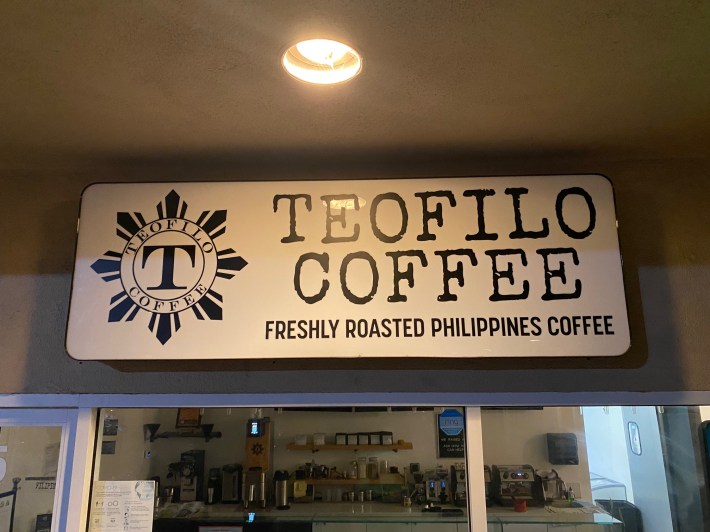
Right now, it’s all about the journey and keeping the focus on uplifting Filipino heritage. His staff is primarily Filipino; the younger, Gen Z crowd, and for many, this is the first chance they are finding out that Filipino coffee is even a thing. It’s also a chance to see firsthand the impact they get to share with older Filipinos, especially those who immigrated to the US and haven’t had the opportunity to reconnect with Filipino coffee since they left.
“I’m half-Filipino, I’m half white, and a first-generation. My dad was born in the Philippines, so it’s always been important to hang onto those roots even though our grandparents wanted us to become Americanized,” says Kae Hernandez, 20, an employee at Teofilo. “That’s a really hard thing to be a first-generation, so you are an American, but then you’re also desperately trying to grasp back at your own culture.”
That attempt at hanging onto her culture and connecting with other Filipinos in search of their culture and homeland was one of the driving forces that led her to work at Teofilo and one of the reasons why she continues to stay because their mission is so much bigger. For Dizon and Teofilo, the journey is never over because it’s about so much more than coffee. To them, this is about bridging generations of Filipinos to a place that many have left a long time ago.
“The older crowd comes in, and they know exactly what they want because they want what they want from home, Hernandez says as she recalls the happiness and memories that the coffee stirs up for her customers.
“‘I can’t get barako here. I haven’t had barako in 30 years. This tastes just like home.’”
Teofilo Coffee Company
10525 Los Alamitos Blvd, Los Alamitos, CA 90720
(714) 715-7183
